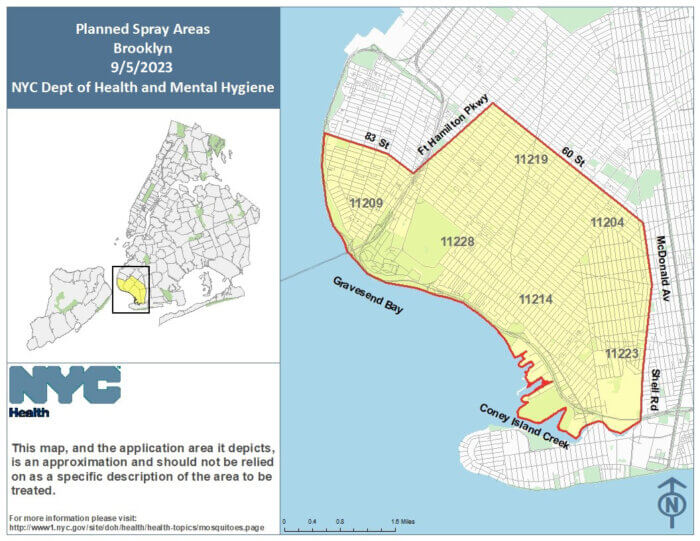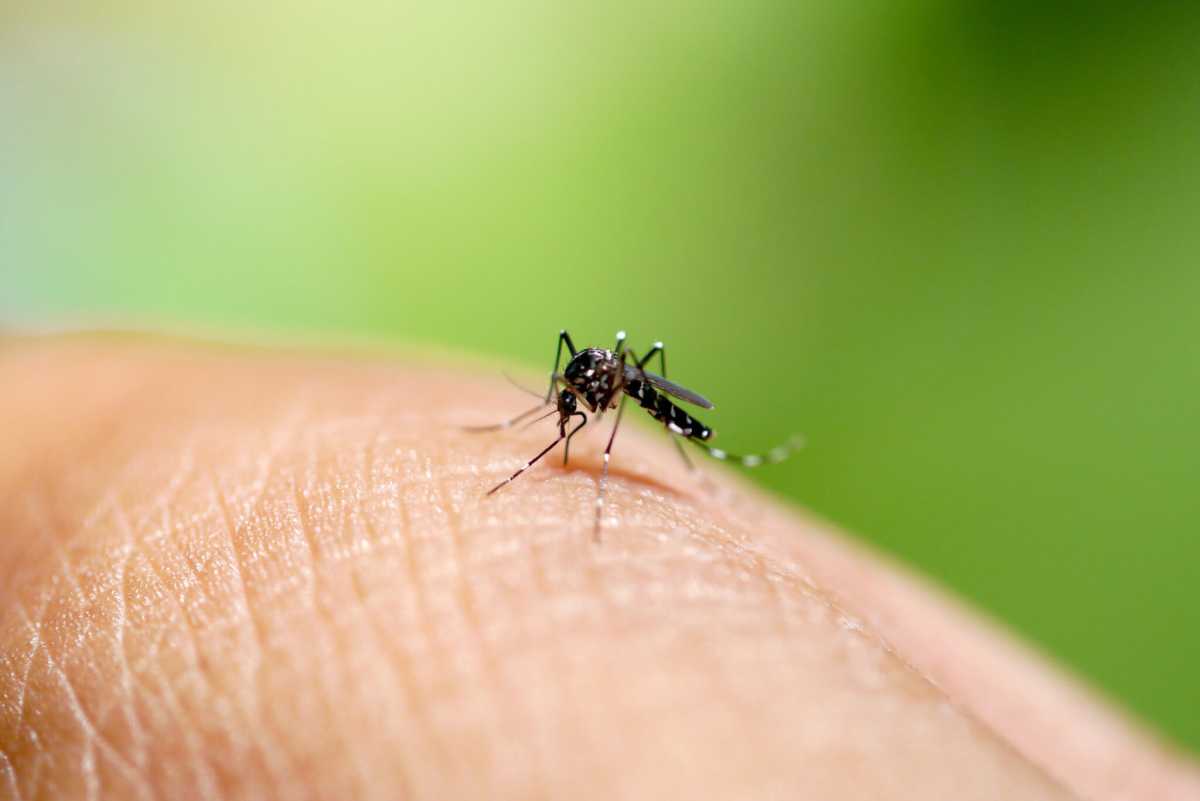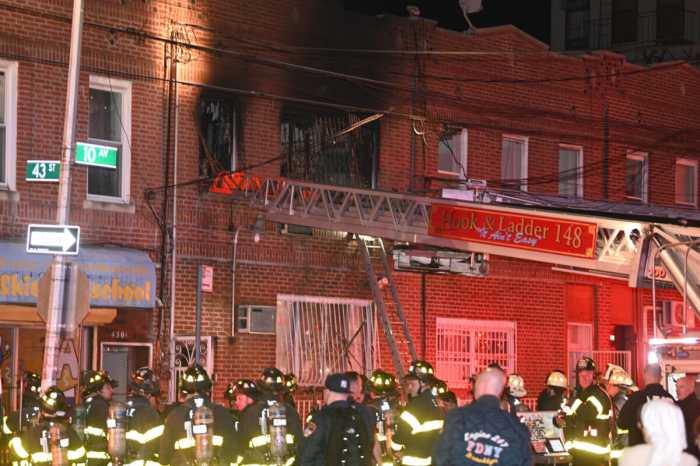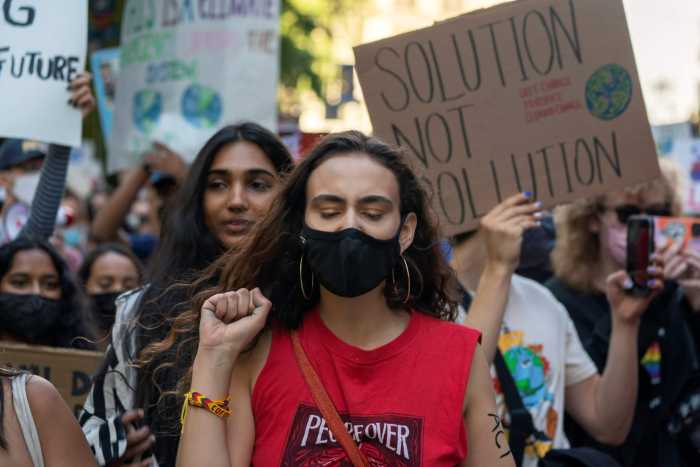As part of its ongoing assault against blood-sucking insects and the diseases they carry, the city will treat parts of southern Brooklyn with mosquito-killing pesticides next week to reduce the risk of West Nile Virus.
Trucks will spray low concentrations of Anvil 10+10, Duet, or MERUS in parts of Bath Beach, Bay Ridge, Bensonhurst, Borough Park, Dyker Heights, Gravesend, Fort Hamilton, and New Utrecht from 8:30 p.m. on Sept. 5 until 6 a.m. on Sept. 6. If the weather is poor, spraying will be delayed until Sept. 6.
Per the city’s health department, the chemicals used to control mosquito populations are largely safe for humans and pets, though people with sensitivities to spray ingredients might experience eye or throat irritation or a rash.

Brooklynites living in the affected areas should stay indoors as much as possible while spraying is occurring, but can keep their air conditioners running. Skin and clothing that come in contact with pesticides should be washed thoroughly with soap and water.
West Nile Virus — which is spread by adult mosquitos carrying the disease — has been found in mosquitos across all five boroughs this summer, according to the health department, and at least three people in the city have been infected with the disease. All three people confirmed to have the virus were hospitalized. So far this year, 247 cases of West Nile have been diagnosed across the U.S., and 13 people have died.
Roughly 80% of people infected with West Nile experience no symptoms, according to the federal Centers for Disease Control and Prevention, but a small number of people will develop a fever, head and body aches, joint mains, vomiting, and other symptoms. While most will recover completely, the agency warns that weakness and fatigue can last for weeks to months after diagnosis.
A small number of people infected with West Nile become seriously ill with meningitis or encephalitis, which can be deadly. People over the age of 60 and people with certain autoimmune conditions are more likely to develop a serious illness — symptoms of which include high fever, neck stiffness, disorientation, muscle weakness, and tremors.
“We are working to prevent West Nile as much as possible through public education, treating marshy areas and spraying for mosquitoes,” said Health Commissioner Dr. Ashwin Vasan in an Aug. 23 statement. “As New Yorkers, we can take some simple precautions to lower our risk. For example, use an EPA registered insect repellent, especially when outside at dusk and dawn when the types of mosquitoes that transmit West Nile virus are most active.”
In addition to wearing a suitable bug repellant, the city encourages New Yorkers to “mosquito-proof” their homes by making sure windows have screens and patching any holes in window screens.
Most importantly, since mosquitos need standing water to breed, Brooklynites should eliminate any standing water around their homes by dumping out and getting rid of containers that can collect water, clearing out gutters and drains, and making sure hot tubs and pools are properly treated and chlorinated.
While mosquitos with West Nile have been found all over the city this year — including in parts of Brooklyn from Bushwick to Marine Park — far fewer positive mosquitos have been reported this year than last, according to the health department. Each year, the city tests and monitors the itchy critters for the disease, and regularly applies pesticides that kill both mosquito larvae and adult bugs starting in the spring.

























